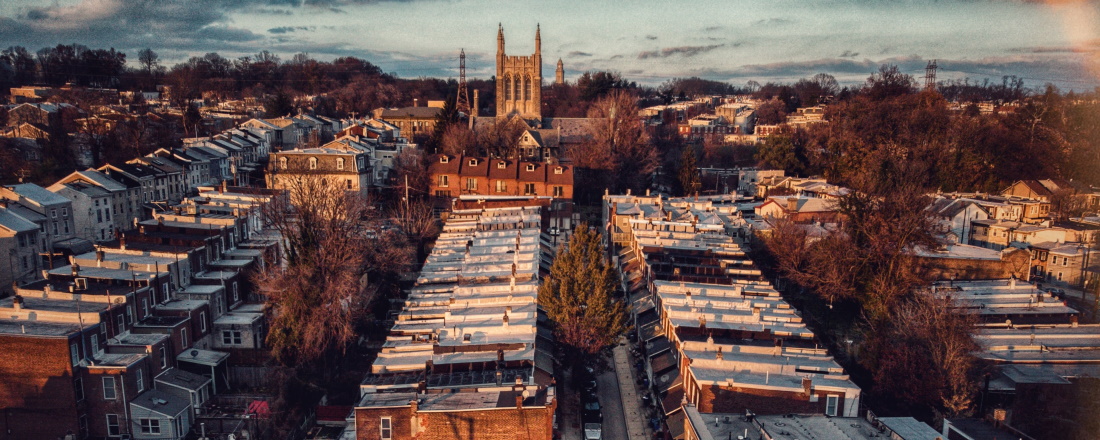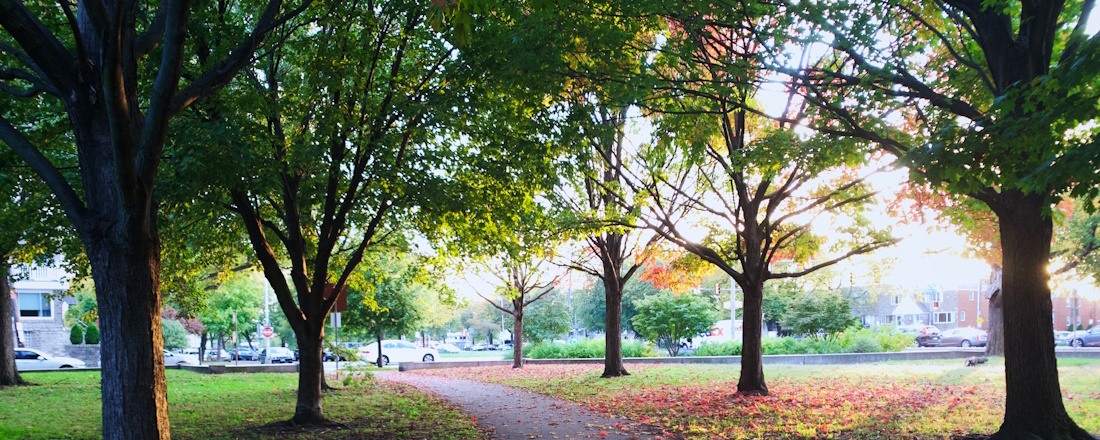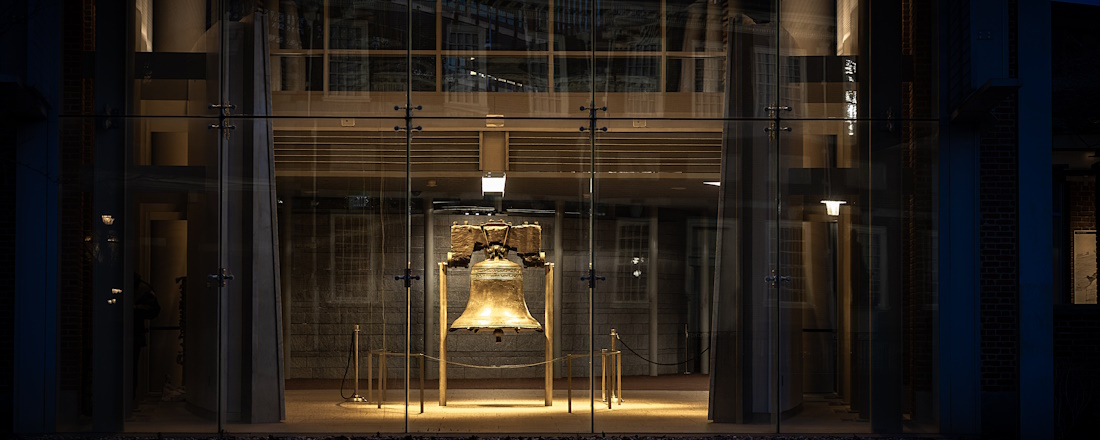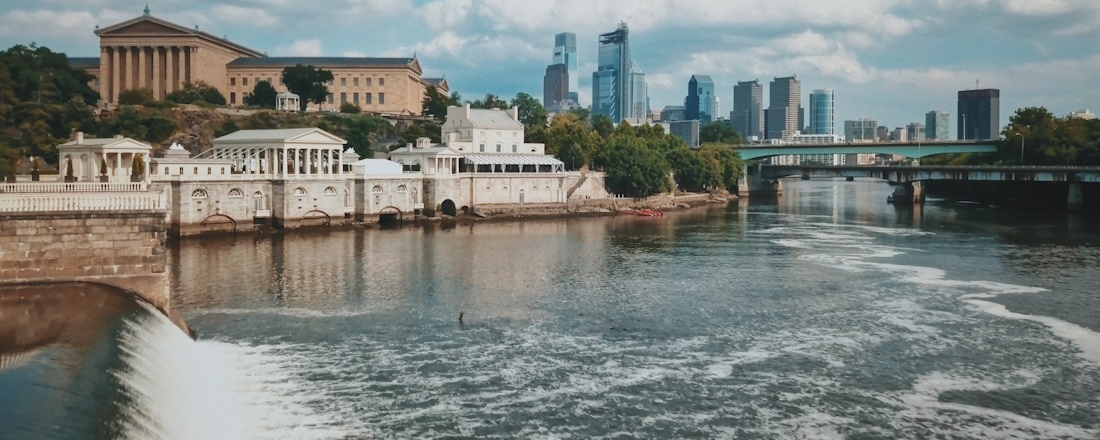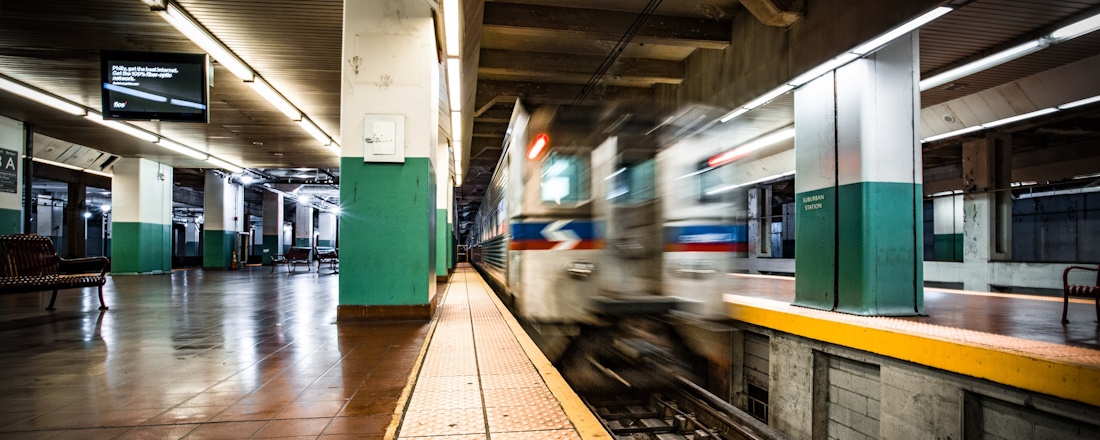The cost of accommodation in Philadelphia is relatively affordable, and there are various housing options available, which is part of the reason people from nearby cities often opt to rent or buy a house here. Although most people start off by renting, new arrivals to the city intending to stay for the long term tend to buy a home.
Areas and suburbs in Philadelphia
Philadelphia, also affectionately known as Philly, boasts a myriad of distinct neighbourhoods, each with its own charm and character. One of the most prestigious areas, Rittenhouse Square, is located in the heart of the city and is home to historic brownstones, upscale boutiques, and gourmet restaurants. For those who enjoy a lively atmosphere, Northern Liberties and Fishtown offer a blend of art, music, and trendy eateries.
Meanwhile, Manayunk, with its steep hills and cobbled streets, attracts a younger crowd, mainly because of its vibrant nightlife and an array of boutique shops. Families tend to gravitate towards Chestnut Hill and Mount Airy, where tree-lined streets, parks, and good schools are abundant.
West Philadelphia, often referred to as West Philly, provides a mix of university housing and Victorian mansions, a testament to the city's rich history. This diversity ensures that whether one is looking for a modern apartment, a historic home, or something in between, Philadelphia has a neighbourhood to suit every preference.
See Areas and Suburbs in Philadelphia to learn more about the City of Brotherly Love's neighbourhoods.
Types of accommodation in Philadelphia
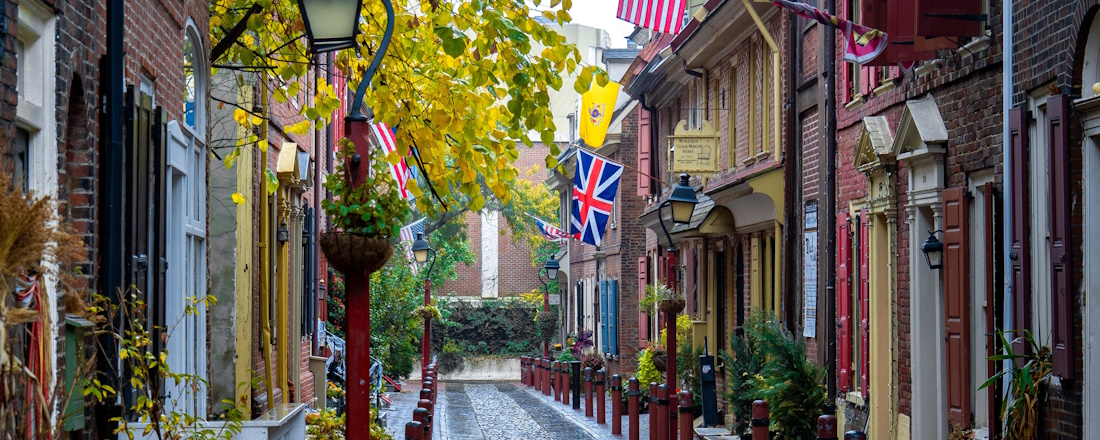
The city has been a major settlement for many centuries. As a result, there's an interesting mix of architecture in Philadelphia. The first rowhouses in the US were built here, and while the original buildings aren't around any more, similar townhouses can be found all over.
In the more affluent suburbs to the northwest, there are historic stone houses dating back to the early 20th century, as well as mansions and farmhouses that have been around since the 1700s. This area is known as the Main Line and has some of the best real estate for raising a family in Philadelphia.
Those wanting a more urban experience can choose from luxury condos in the heart of the city and trendy loft apartments in some of its safer outlying neighbourhoods.
Finding accommodation in Philadelphia
Those wanting to buy property in Philadelphia should either have a pre-approved mortgage or proof of funds before searching for accommodation. After that, the process for buying and renting is more or less the same.
The internet is an excellent place to start looking for accommodation in Philadelphia, as there are various real-estate agents, classifieds websites and local publications with property sections on their sites. New arrivals looking to rent in Philadelphia could also look up apartment management companies or building owners and contact them directly.
In Philadelphia, agents' fees are often paid by the seller or, in the case of rentals, they are paid a commission by the landlord. It's best to check with the agent upfront, though.
Useful links
- Zillow provides comprehensive property listings in Philadelphia.
- Realtor offers insights into available properties for both rent and purchase in Philly.
- Trulia features reviews of neighbourhoods alongside its property listings.
Renting accommodation in Philadelphia
The rental market in Philadelphia is presently skewed towards landlords. Aside from the seasonal influx of students that starts around July, the rest of the year sees many people moving from neighbouring cities where property is pricier. Many don't have the means to buy, which increases the demand for rentals and negatively impacts prices. That said, it's still more straightforward, accessible and affordable to rent in Philadelphia than in cities such as New York and Boston.
Making an application
Once a new resident has found an apartment or house they're interested in, they need to submit a rental application. There is usually a small fee attached to the rental application. The cost of this application can vary, so applicants will need to check with the landlord or rental agency.
The application may require applicants to submit proof of income, bank statements and references. During this time, the landlord will most likely check the applicant's credit score and criminal record as well. Once the application has been approved, the next step is to review the lease and sign the rental contract.
Leases, costs and fees
When looking to rent in Philadelphia, it's essential to be aware of potential extra costs. Besides the security deposit, tenants might have to pay a one-time move-in fee, especially in apartment complexes. There's also the possibility of a pet fee if the property allows animals. Additionally, while some landlords might offer rent reductions for signing longer leases, tenants must ensure they're comfortable with the duration before committing, as breaking a lease can incur penalties.
Leases in Philadelphia typically last for a year, but month-to-month contracts are also common. When signing the lease, be sure to read the entire agreement thoroughly and ensure that any verbal assurances by landlords are put into writing.
According to Pennsylvania law, a landlord may charge a tenant the equivalent of two months' rent for the security deposit for the first year of renting and the equivalent of one month's rent during all subsequent years of renting. Some landlords may also require tenants to take out renter's insurance.
See Accommodation in the USA for more on rental processes in the country.
Utilities in Philadelphia
Homeowners will have to take responsibility for all of their utility needs. The utilities that tenants are responsible for often depend on the conditions of the lease and whether it's a house or an apartment. In a house, tenants are likely to be responsible for all utilities.
When renting an apartment, the landlord may assume responsibility for utilities such as heating (gas or electricity) and, almost always, water. Tenants will almost always be responsible for paying for their telephone and internet services. Before signing a lease, new arrivals should ensure that the terms are clear regarding whether the cost of utilities is included in the monthly rent amount.
Electricity and gas
In Philadelphia, electricity and gas services are typically provided by PECO. New residents need to contact PECO before their move to ensure a seamless transition of services. Setting up an account is relatively straightforward and can be done online or over the phone. For those living in apartments, it's not uncommon for electricity to be included in the rent. However, gas, especially for heating during the cold winter months, is often an additional cost to consider.
Energy-saving initiatives have grown in popularity, and many Philadelphians have opted for green energy providers. These providers source a portion, if not all, of their electricity from renewable sources, offering an environmentally friendly option to the traditional grid.
Water
The Philadelphia Water Department is responsible for water and sewer services in the city. Typically, homeowners have to set up their water account, while renters may find that water costs are either included in their rent or billed separately by the landlord or management company.
It's worth noting that Philadelphia's tap water is considered safe to drink. The city frequently tests its water sources and purification processes to ensure quality. While some residents prefer using filters for taste, they aren't necessary for health reasons.
Waste management and recycling
The Philadelphia Streets Department is responsible for solid waste management in the city. Rubbish collection usually takes place once a week, with the exact day depending on the neighbourhood. Residents are required to use sturdy, lidded containers for their rubbish. The city encourages recycling, with single-stream recycling in place, meaning all recyclables can be placed in one bin without sorting. The Philadelphia Streets Department regularly updates guidelines on what can and can't be recycled, and residents are advised to stay informed to ensure they recycle effectively.
Most large properties, like apartment complexes, have designated rubbish rooms for waste and recycling. The tenant needs to find out from the landlord where to dispose of everyday rubbish as well as large items like furniture.
Internet
Internet service in Philadelphia is dominated by a few major providers, including Xfinity and Verizon. When choosing an internet service, residents should consider not only monthly fees but also installation costs, equipment rental fees, and the length of the service contract. Many providers offer bundled packages that include television and landline telephone services, which can be a cost-effective option for some.
Useful links

